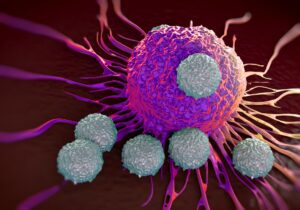The health benefits of Iboga, a potent plant native to Central and West Africa, have gained notoriety for their remarkable healing properties. It has shown immense potential in treating a wide range of conditions, from addiction to cancer, and even HIV. Yet, despite its numerous therapeutic benefits, Iboga remains illegal in most parts of the world. In this article, we delve into the seven real reasons behind this prohibition, shedding light on the untapped potential of Iboga in the realms of anti-depression, anti-addiction, anti-cancer, anti-parasitic, anti-fungal, anti-HIV, and anti-diabetic treatments. Moreover, we unveil how the pharmaceutical industry, plays a significant role in keeping Iboga suppressed.
Anti-Depression:

The health benefits of Iboga are particularly evident in its potential to address depression. Ibogaine, a compound found in Iboga, holds the key to combating this debilitating condition. It acts on 5-HT2A serotonin receptors, increasing serotonin levels in the brain, a known factor in alleviating depression. The evidence suggests that Ibogaine has the potential to be a game-changer in the treatment of depression, offering new hope to millions who suffer from this condition and highlighting the profound health benefits of Iboga1
Anti-Addiction:

The world is grappling with addiction to substances like tobacco, heroin, alcohol, and opioids. Ibogaine, with its ability to modulate dopamine and serotonin levels in the brain, presents a promising solution. Research indicates that just one session with Ibogaine can cure addiction, potentially revolutionizing addiction treatment as we know it.2
Anti-Cancer:

Iboga’s anti-cancer properties further underscore its health benefits. The compound catharanthine, found in Iboga, is a key ingredient in drugs like Vinblastine and Vincristine, which are used to treat lymphoma, leukemia, and other cancers. These drugs disrupt cellular mitosis and trigger programmed cell death, effectively halting the growth of cancer cells. The health benefits of Iboga’s potential in cancer treatment are a compelling reason to explore its legalization and make it accessible to those in need..3
Anti-Parasitic:

The health benefits of Iboga extend to combating parasites. Studies have shown that Iboga root bark and its alkaloids, ibogaine and voacangine, exhibit significant anti-amoebic activity, leading to the death of parasites. This discovery offers a natural and effective remedy against parasitic infections, showcasing yet another facet of the health benefits of Iboga.4;5
Anti-Fungal:
Iboga’s anti-fungal properties make it a valuable resource in the battle against fungal infections. It inhibits Candida enzymes and prevents their attachment to host cells, providing relief from fungal infections. The health benefits of Iboga in this context could potentially reduce the reliance on synthetic antifungal drugs, emphasizing its potential in improving public health.6
Anti-HIV:

Iboga’s derivative, 18-Methoxycoronaridine (18-MC), has shown promise in inhibiting the replication of HIV-1 in human blood and immune cells. With further research, Iboga could emerge as a potent antiretroviral treatment for HIV and AIDS, offering hope for those affected by this devastating virus.7
Anti-Diabetic/Hyperglycemic:

Traditional medicine in Central and West Africa has long utilized Iboga to manage type 2 diabetes. Iboga contains insulinotropic compounds that stimulate insulin secretion, potentially offering a natural alternative to conventional diabetes management.
The Suppression of Iboga and Big Pharma’s Interests
Behind the curtains of Iboga’s prohibition lies a significant obstacle: the pharmaceutical industry’s vested interests. Iboga’s potential to cure a myriad of illnesses and conditions poses a serious threat to Big Pharma’s multi-billion dollar revenue streams. The industry thrives on the perpetuation of chronic illnesses, as a patient cured is, in their view, a customer lost.
To date, the FDA claims that Iboga has potential for abuse, a notion that we dispute vehemently. The real reason for its continued illegality becomes evident when one considers the vast financial implications a plant like Iboga represents.
While the prohibition of Iboga remains a contentious issue, it is crucial to recognize Iboga’s untapped potential in addressing some of humanity’s most pressing health concerns. The influence of Big Pharma cannot be underestimated in perpetuating this prohibition, as the industry’s interests are deeply entrenched in maintaining the status quo. With further research and public awareness, Iboga has the potential to challenge the dominance of pharmaceutical giants and offer new hope to individuals suffering from a range of debilitating conditions.
Check out ICEERS for more info on Iboga and Ibogaine.
Get in touch with us if you are intrested in Joining a Iboga ceremony.
References
- Drug Science; Ibogaine
(https://www.drugscience.org.uk/drug-information/ibogaine/) ↩︎ - Gregg B Wells; Melissa C Lopez; Jacqueline C Tanaka; The effects of ibogaine on dopamine and serotonin transport in rat brain synaptosomes; 1999; (https://www.sciencedirect.com/science/article/pii/S0361923099000532) ↩︎
- Sikwang Seong; Hyeonggeun Lim; Sunkyu Han; Biosynthetically Inspired Transformation of Iboga to Monomeric Post-iboga Alkaloids; 2019; (https://www.sciencedirect.com/science/article/pii/S2451929418304893#:~:text=The%20most%20notable%20members%20of,cleavage%20of%20the%20catharanthine%20moiety.) ↩︎
- Julio César Carrero et al; Potent Anti-amoebic Effects of Ibogaine, Voacangine and
the Root Bark Alkaloid Fraction of Tabernaemontana arborea; 2022; (https://www.thieme-connect.de/products/ejournals/pdf/10.1055/a-1809-1157.pdf) ↩︎ - Jan Carlo Delorenzi et al; In Vitro Activities of Iboga Alkaloid Congeners Coronaridine and 18-Methoxycoronaridine against Leishmania amazonensis; 2002; (https://www.ncbi.nlm.nih.gov/pmc/articles/PMC127312/) ↩︎
- M. Yordanov et al; Ibogaine reduces organ colonization in murine systemic and gastrointestinal Candida albicans
infections; 2005; (https://pubmed.ncbi.nlm.nih.gov/15947429/ ↩︎ - Edinete M Silva et al; Anti-HIV-1 activity of the Iboga alkaloid congener 18-methoxycoronaridine; 2004; (https://pubmed.ncbi.nlm.nih.gov/15386189/#:~:text=The%20Iboga%20alkaloid%20congener%2018%2Dmethoxycoronaridine%20(18%2DMC)) ↩︎
